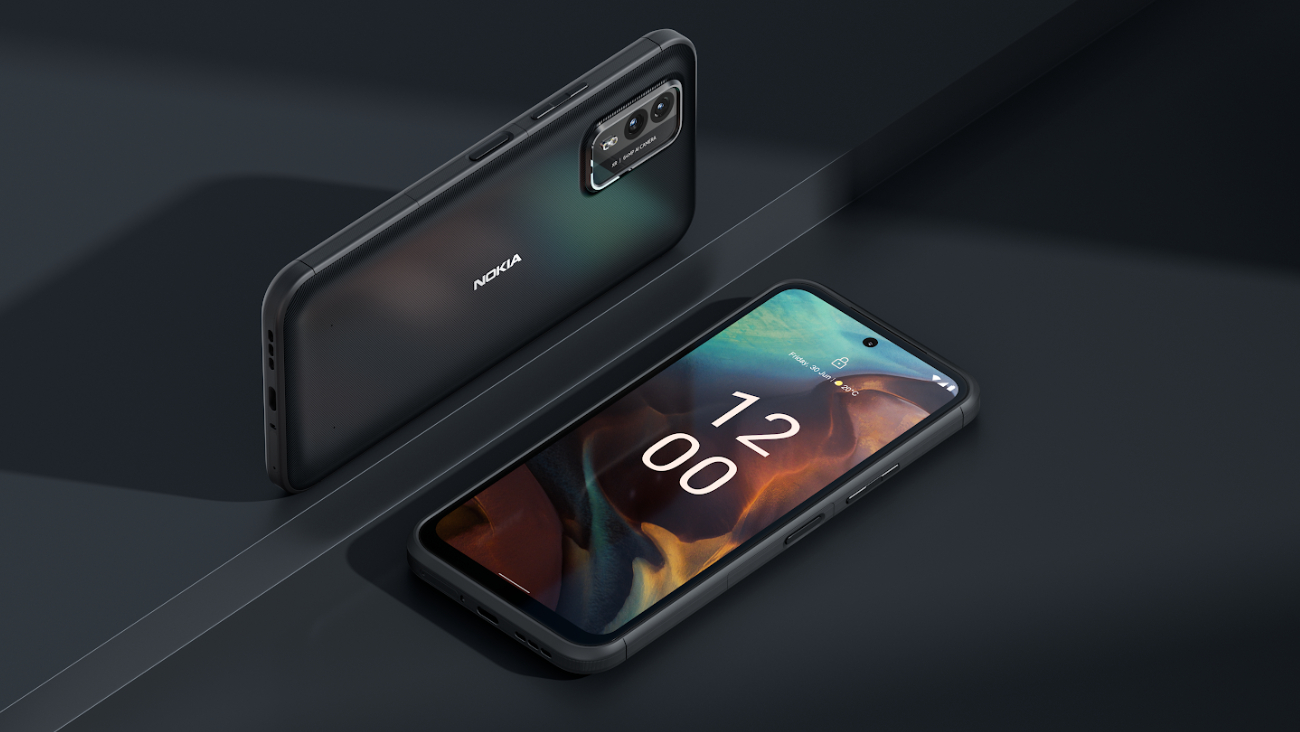Nokia XR21 could have been the perfect rugged smartphone, if not for these three drawbacks
A high launch price, lack of wireless charging and a USB 2.0 port left us perplexed

HMD Global has released the Nokia XR21, the follow up to the award winning Nokia XR20, one of the best rugged smartphones on the market which we reviewed in 2021.
Pitched by the company as the smartphone version of the legendary Nokia 3310, it claims the XR21 is, “so durable that it can withstand a soaking from a 100-bar pressure water hose jet with an 80 degrees centigrade water temperature."
The Nokia XR21 goes on sale in the UK for £499.99/$499 in the US/ AU$799 in Australia, and unlike its predecessor, only one model (6GB RAM/128GB storage) will be available in two color schemes, pine green and midnight black. It will also be available for rent on Nokia’s Circular subscription service for £22 per month with a £30 setup fee and a minimum of three month commitment.
Ready for Android 15
The USP of the Nokia XR21 is its toughness, with an ability to withstand more than just a bit of rough and tumble. It is certified IP69K and MIL-STD-810H, which means that it will survive - in theory - drops of up to 1.8 meters and much more. Its reinforced chassis - made of recycled aluminum - with what looks like a layer of rubberized coating on top should keep it in good shape even after some heavy handling.
HMD Global has included a three-year warranty as standard plus a 1-year screen replacement warranty for ANZ and EU customers, in case the Gorilla Glass Victus protection was not up to scratch (pun intended). The rest of the specification is what you’d expect from an entry-level to mid-range smartphone.

Best cloud storage: Expand your storage easily
Best cloud backup: Protect your data on the go
Best cloud storage for photos: Space for your photos
Best business cloud storage: Data resilience for business
Best free cloud storage: Bits and bytes online for free
There’s a Qualcomm system-on-chip (Snapdragon 695) with 6GB of RAM and 128GB onboard storage, a 6.49-inch FHD+ display with a 120Hz refresh rate and a staggering 550 nits brightness, two rear cameras (64-megapixel and 8-megapixel), one 16-megapixel front snapper, an audio jack (remember those?) Wi-Fi-6E, a pair of speakers, NFC and eSIM support.
Compared to the XR20 though, it has a bigger battery (4800mAh), loses the wireless charging and downgrades the Type-C connector to USB 2.0. While it does support fast charging (up to 33W), it doesn’t come with a charger, only a USB cable.
Are you a pro? Subscribe to our newsletter
Sign up to the TechRadar Pro newsletter to get all the top news, opinion, features and guidance your business needs to succeed!
Where the XR21 will appeal to an enterprise/business audience is the fact that it supports Android 15 (three Android updates from Android 12) and provides four years of monthly security updates. Great for protecting mobile devices from any OS-based vulnerabilities.
There’s also space for two nano-SIM cards and HMD Global engineers judiciously added two rapid access buttons and an eSIM.
Of its predecessor, the XR20, I said that “Nokia hits the right notes with its attempt to bring rugged to the mainstream with the XR20. It does so in style with 5G connectivity, a large screen and a sleek design, miles away from traditional rugged smartphones.”
It would be interesting to see whether Nokia brings out a durable version of the T21 to become a potential candidate for our best rugged tablet buying guide.

Désiré has been musing and writing about technology during a career spanning four decades. He dabbled in website builders and web hosting when DHTML and frames were in vogue and started narrating about the impact of technology on society just before the start of the Y2K hysteria at the turn of the last millennium.